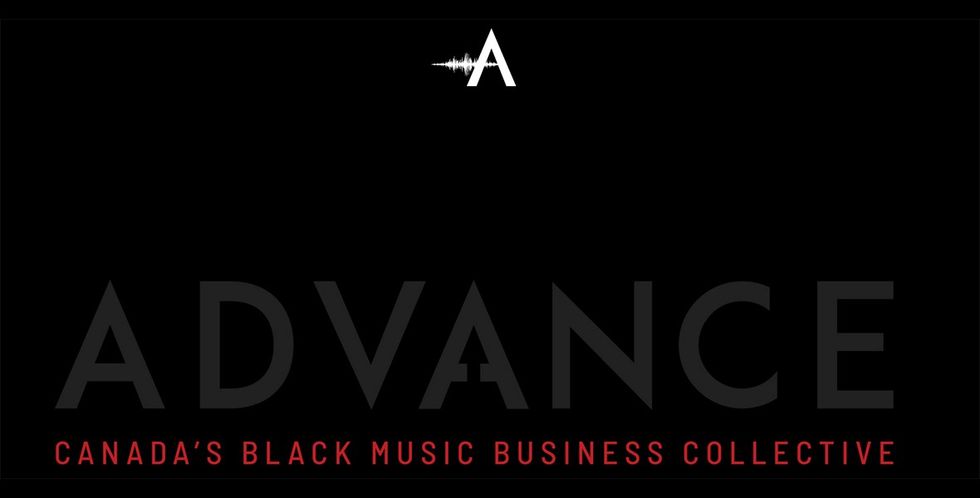Five Questions With... ADVANCE's Aidan Sykes
Canada’s Black Music Business Collective has just been established, with the aim of leading the change for real, tangible Black advancement and reform in the music business. One of its reps, Sony Music Canada’s Media Relations Manager Jamelia Campbell is a passionate advocate for the cause, as this interview illustrates.

By Jason Schneider
Launched in July, ADVANCE, Canada’s Black Music Business Collective, is a non-profit organization that aims to provide a unified voice for Black people working in the Canadian music industry. Its overall aim is to lead the change for real, tangible Black advancement and reform in the music business.
As a unified front for Black people working within all areas of the Canadian music industry, the org is focused on addressing racial equality and inclusivity. By holding the establishment accountable, ADVANCE is committed to building a more equitable Canadian music industry that grants Canada’s Black music communities a fair and valued voice.
Membership is open to self-identifying Black persons working in all branches in Canadian music. As well, the organization aims to assist entrepreneurs in growing their businesses, in an effort to provide more sustainable opportunities for Black employment within the Canadian music landscape and groom future professionals for roles in the business within companies that don't currently have any Black presence.
We spoke to Aidan Sykes, ADVANCE representative and Artist Marketing Manager at Sony Music Canada, to find out more. For further information, email connect @ advancemusic.org.
What inspired you to launch ADVANCE, and how has the process been so far?
ADVANCE was founded by three senior execs in the music business, Vivian Barclay, Miro Oballa and Craig Mannix, after years of having the same discussions that have recently been illuminated by the media. The murders of George Floyd, Breonna Taylor, and Ahmaud Arbery were not only the catalyst for racial justice protests for Black Lives Matter, but it also led to Black Out Tuesday. Originally, Black Out Tuesday went hand-in-hand with an initiative called the Show Must Be Paused created by Brianna Agyemang and Jamila Thomas—it was a call to disrupt the everyday workings of the music industry, and ultimately it re-centred the conversation for us to create the collective.
For me, the process has been very rewarding and a major learning experience. We are still in our infancy with a lot of work ahead of us to dismantle decades of systemic racism. I compare us to being in a tech start-up, where everyone involved is wearing multiple hats, but all driving to the same goal: Change the Canadian Music Entertainment Industry infrastructure for the betterment, upliftment, and retention of Black people. The feedback has been positive overall, and we’re seeing people in the music community across Canada wanting to get involved. That supportive energy is what’s keeping the fight alive as we continue to build.
What are your primary goals, and how are you working to achieve them?
As an organization, we are committed to holding all sectors of the Canadian music industry accountable on a level that will allow Black people to flourish and begin to take space where we're often excluded. We’re demanding fundamental changes in the corporate, private and government sectors with regards to the way music business is conducted, including, but not limited to, creating equal opportunities and pipelines within companies for Black employees, making anti-Black racial education programs mandatory, changing policies for fair and equitable access to the funding system and supporting the Black music community through financial means. We’re working to achieve our goals by focusing on four key pillars: Advocacy & Government, Mentorship & Education, Community Outreach and Business Development & Entrepreneurship.
Promoting entrepreneurship seems a big component. What's your best advice to emerging artists or managers when it comes to establishing a presence in the music business right now?
Entrepreneurship is definitely one of the key components we’re looking to tap into with the intention of providing more opportunities for emerging artists and managers to learn and build from. Knowledge is key and my best advice is to surround yourself with people who have the same mindset. Discover communities and join organizations like the Music Manager Forum to learn from those who have succeeded and connect with others in a similar stage of building. We’re looking to help facilitate these connections and become a hub for those who are trying to navigate the ever-changing music industry.
On a personal level, are you encouraged that the Canadian music industry is embracing more diversity (e.g. the Polaris Prize)?
The recent protests and dialogue have made the Canadian music industry turn a lens on itself in a way that I don’t think they have truly done in the past. It’s one thing to acknowledge the issues and give Black voices a platform, but it's another thing to take action and create long-term initiatives, whether that's more outreach, more partnerships, or even better support for current Black employees. The comfort of the status quo has led to a lack of growth, and I feel that the industry is finally recognizing that and trying to remedy it. I’m optimistic that the Canadian music industry is embracing more diversity, but the real indicator for me will be the systemic change that is made to facilitate diversity for years to come and not just for this current moment.
Doing all of this in the middle of the pandemic is obviously challenging. What are some of the things you're hoping to do at ADVANCE once things hopefully get back to normal?
I want to link up with my ADVANCE people and turn up! I think we’re all ‘Zoomed out’ and in-person town halls across the country would be something I’d like to see happen. The energy of all of us in one space would be such a great feeling, knowing we’re all in this together trying to make a change for the future.
We’ve been able to have some great discussions and get ideas flowing through our online meetings, phone calls, and email threads, but I think just getting to know each other better as individuals will strengthen the collective we’re building, and ultimately the community.

















